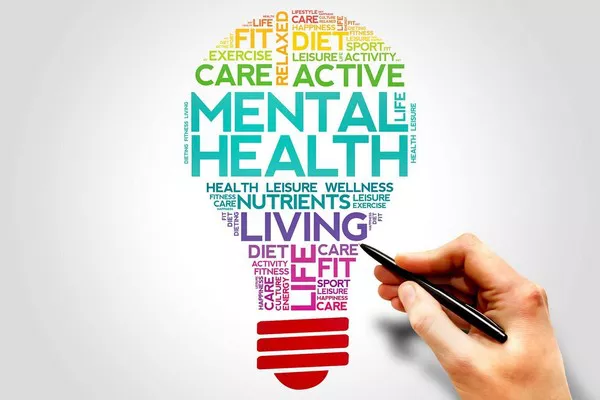Excessive talking, or logorrhea, can be a behavior associated with various mental health disorders. While talkativeness is a normal human trait, when it becomes an overwhelming or compulsive pattern, it may indicate an underlying mental health concern. In this comprehensive exploration, we will delve into the connection between excessive talking and mental illness, examining the potential disorders linked to this behavior, the impact on individuals, and strategies for addressing these challenges.
The Spectrum of Excessive Talking
Excessive talking goes beyond the ordinary chit-chat or expressive communication that defines human interaction. It involves an uncontrollable need to speak, often with rapid speech, impulsivity, and a lack of awareness of the social cues indicating that others may not be as engaged in the conversation. This behavior can manifest differently in various mental health contexts.
Potential Mental Health Disorders Associated with Excessive Talking:
1. Mania or Hypomania:
Excessive talking is a common symptom of manic or hypomanic episodes associated with bipolar disorder. During these episodes, individuals may experience heightened energy levels, impulsivity, and a reduced need for sleep. The rapid and incessant speech observed during mania is often a key diagnostic criterion.
2. Attention-Deficit/Hyperactivity Disorder (ADHD):
ADHD, particularly the hyperactive-impulsive subtype, can lead to impulsive behavior, including excessive talking. Individuals with ADHD may struggle to control their impulses, leading to talkative episodes that disrupt social interactions.
3. Anxiety Disorders:
In some cases, excessive talking can be a manifestation of anxiety disorders, such as generalized anxiety disorder or social anxiety. Talking incessantly may serve as a coping mechanism or a way to manage anxiety, although it may inadvertently create social challenges.
4. Psychosis:
Psychotic disorders, including schizophrenia, may involve disorganized thinking and speech patterns. Excessive talking can be a symptom of this disorganization, with individuals expressing thoughts in a rapid and fragmented manner.
5. Substance Abuse:
Substance abuse, particularly stimulant use, can lead to increased talkativeness. Drugs like amphetamines can amplify speech and reduce inhibitions, contributing to excessive talking.
Impact on Daily Functioning:
Excessive talking can have a profound impact on an individual’s daily life, affecting relationships, work, and overall well-being. The consequences may include:
Social Challenges: Individuals who talk excessively may struggle to maintain meaningful connections as their communication style may be perceived as dominating or overwhelming.
Workplace Issues: In professional settings, excessive talking can disrupt productivity, hinder teamwork, and lead to difficulties in maintaining employment.
Strained Relationships: Family and interpersonal relationships may be strained, as excessive talking can create communication imbalances and frustration among loved ones.
Strategies for Addressing Excessive Talking:
1. Professional Assessment:
Seeking the expertise of mental health professionals, such as psychologists or psychiatrists, is crucial for a comprehensive assessment. A thorough evaluation can help identify the underlying mental health disorder contributing to excessive talking.
2. Medication Management:
For conditions like bipolar disorder or ADHD, medication may be recommended to help regulate symptoms, including excessive talking. Medications, when prescribed and monitored by healthcare professionals, can play a vital role in managing these behaviors.
3. Therapeutic Interventions:
Psychotherapy, such as cognitive-behavioral therapy (CBT) or dialectical behavior therapy (DBT), can be effective in addressing the underlying issues associated with excessive talking. Therapists work with individuals to develop coping mechanisms, improve impulse control, and enhance interpersonal skills.
4. Support Groups:
Joining support groups for individuals experiencing similar challenges can provide a sense of community and understanding. Sharing experiences with others facing excessive talking can offer valuable insights and emotional support.
5. Lifestyle Modifications:
Adopting lifestyle changes, including stress-reduction techniques, regular exercise, and healthy sleep habits, can contribute to overall mental well-being. These modifications may indirectly help manage excessive talking by addressing underlying stressors.
6. Communication Skills Training:
Workshops or therapy focused on enhancing communication skills can be beneficial. Learning to recognize social cues, practicing active listening, and developing conversational awareness are crucial aspects of managing excessive talking.
Navigating Excessive Talking with Compassion
It’s essential to approach excessive talking with empathy and understanding. Individuals experiencing this behavior may not always be aware of its impact on others or the underlying mental health challenges they face. By fostering open communication and encouraging professional help, friends and family can play a supportive role in the journey toward improved mental health.
Conclusion
Excessive talking is a nuanced behavior that can be indicative of various mental health disorders. Recognizing the potential underlying conditions and addressing them through a combination of professional interventions, medication management, and supportive strategies is crucial for individuals seeking relief from this challenging pattern of communication.
By acknowledging the link between excessive talking and mental health, society can work toward creating a more compassionate and informed environment. Breaking the stigma surrounding mental health challenges opens the door to effective treatment, understanding, and ultimately, a better quality of life for those affected by excessive talking and its associated disorders.


